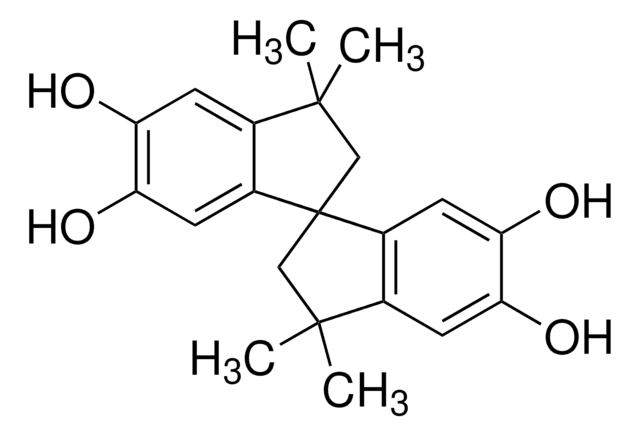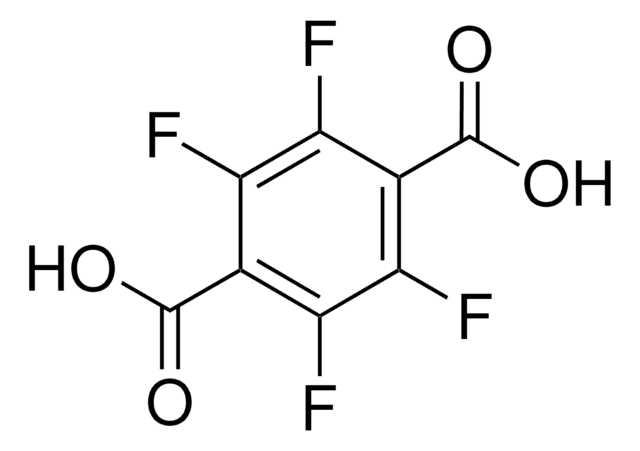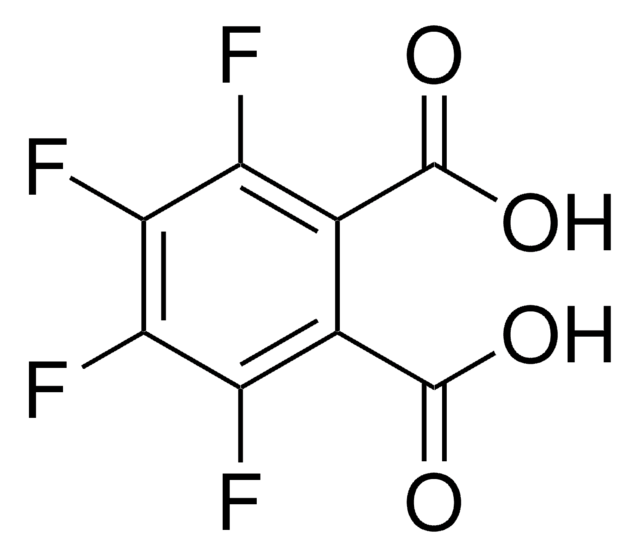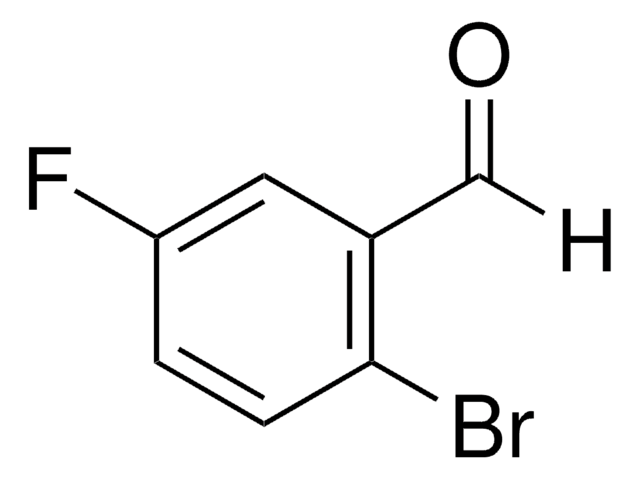104426
Tetrafluoroterephthalonitrile
99%
Sinónimos:
2,3,5,6-Tetrafluoro-1,4-dicyanobenzene
About This Item
Productos recomendados
Quality Level
assay
99%
form
solid
mp
197-199 °C (lit.)
solubility
acetone: soluble
SMILES string
Fc1c(F)c(C#N)c(F)c(F)c1C#N
InChI
1S/C8F4N2/c9-5-3(1-13)6(10)8(12)4(2-14)7(5)11
InChI key
PCRSJGWFEMHHEW-UHFFFAOYSA-N
General description
Application
signalword
Danger
hcodes
Hazard Classifications
Acute Tox. 3 Oral - Eye Irrit. 2 - Skin Irrit. 2 - STOT SE 3
target_organs
Respiratory system
Storage Class
6.1C - Combustible acute toxic Cat.3 / toxic compounds or compounds which causing chronic effects
wgk_germany
WGK 3
flash_point_f
Not applicable
flash_point_c
Not applicable
ppe
Eyeshields, Faceshields, Gloves, type P2 (EN 143) respirator cartridges
Certificados de análisis (COA)
Busque Certificados de análisis (COA) introduciendo el número de lote del producto. Los números de lote se encuentran en la etiqueta del producto después de las palabras «Lot» o «Batch»
¿Ya tiene este producto?
Encuentre la documentación para los productos que ha comprado recientemente en la Biblioteca de documentos.
Los clientes también vieron
Nuestro equipo de científicos tiene experiencia en todas las áreas de investigación: Ciencias de la vida, Ciencia de los materiales, Síntesis química, Cromatografía, Analítica y muchas otras.
Póngase en contacto con el Servicio técnico











